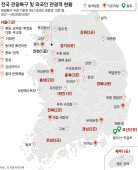2 Gov`t Advisers Urge More Lending to Small Companies
2 Gov`t Advisers Urge More Lending to Small Companies
Posted May. 05, 2009 06:15,
As I quit working for a bank and now work for companies, I see ways to save banks, companies and provincial economies by sponsoring small and medium-size enterprises through technologies. I regret I only lent money to healthy small companies because of the pressure of reaching goals when I was a branch manager of a bank.
Choi Cheol-soo, 58, adviser to the Financial Supervisory Commission, said this when explaining the biggest difference between working for a bank and working for companies.
The commission created a financial support team for small and medium-size companies at six industrial complexes and hired two retired managers of bank branches.
Choi, who worked for Woori Bank, and Seon Seok-geun, 56, formerly of Industrial Bank of Korea, are on the team for Namdong Industrial Complex. Their job is to help small businesses face challenges when dealing with financial institutions.
○ Neglect of small but competent companies
The Namdong complex has many small businesses that have cutting-edge technologies but are on the brink of bankruptcy because of a fund shortage of just tens of millions of won (tens of thousands of U.S. dollars). They were rejected for loans when the two advisers were at banks, and are still ignored by banks.
The owner of a machine manufacturer whose revenues had nearly reached 100 million won (78,474 dollars) last year wanted advice after failing to get additional bank loans. The owner repaid half of his loan 150 million won (117,700 dollars) - by putting up his factory worth 250 million won (196,180 dollars) as collateral.
As the economy got worse, he needed an additional 70 million won (54,930 dollars) but his request was rejected. A former engineer, the owner showed pictures of machines his company can produce that took up a thick album.
Choi said, (The owner) has enough collateral and repaid part of the loan. I cannot understand why banks do not lend him money.
When he was a branch manager, Choi said he balked at giving loans to small companies, saying he thought it is much better to have one big corporate client rather than lending to 10 small companies.
Working for small companies, however, changed Chois mind. Its hard to attract a big corporate client as many banks fiercely compete for it, he said. Finding a small company with big potential could be the source of future revenue.
The bank eventually accepted his argument and granted an additional loan to the small business owner.
○ Public interest amid business difficulty
From their 30 years of financial experience, the two advisers said they can immediately tell if a bank is seeking too much profit or is not healthy when they listen to complaints of small business owners.
The owner of a steel machinery manufacturer who visited the financial support team said yesterday, When I said I didnt have enough collateral, the bank rejected my request for a bank guarantee. So I cannot get the leftover contract money.
The manufacturer has land near the Namdong complex but since it is out of the complex, the government gave it a low appraised value. The land, however, was taken as collateral.
Learning of this, Choi called the bank and asked it to consider issuing a guarantee because the land could command a high market price. A branch manager has room to maneuver in cases like this. I think the bank just wanted to follow the rules.
As the government urges banks to extend loans to low-income households and smaller businesses, banks are worried over threats to their soundness.
Banks are private companies with public interests, and if banks dont care more about public interests, all of society can run into trouble, Seon said.
When bank employees spend more time visiting companies instead of just doing paperwork in deciding whether to grant credit, small companies with huge potential can be found. This can help both banks and businesses flourish.
chance@donga.com
Headline News
- N. Korea redefines S. Korea as ‘hostile state’ in revised constitution
- Samsung develops graphic DRAM with industry-leading capacity and speed
- Three questions allegedly leaked via text message during Yonsei Univ. essay test
- China to inject 340 trillion won in loans to support real estate sector
- Dodgers beat Mets to take 2-1 lead in NLCS







